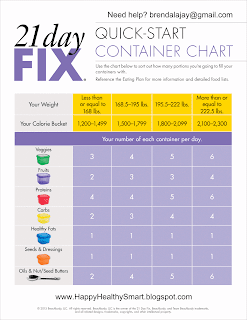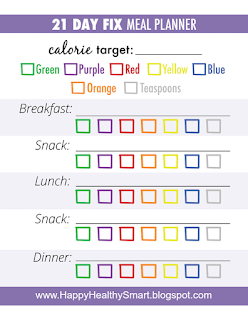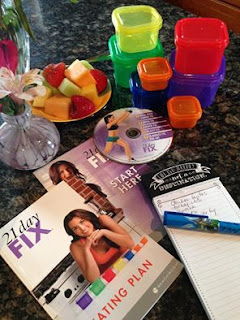by Rebecca Swanner for the Beachbody blog
Ah, the wonderful, incredible egg. The whites are full of protein and the yolks are high in B vitamins, omega-3s and contain all 9 essential amino acid. Not bad for about 78 calories per large egg!
I love hard-boiled eggs. Plain, or (as I prefer), with just a touch of salt and pepper, they make a great snack. And, they’re wonderful in salads! But, making them…that’s another story. For years, I dreaded making them. I especially dreaded peeling them. At best, by the time I was done, the egg would look like it had been gnawed on. At worst, it I’d lose almost half the egg in the peeling process. To make matters worse, the yolks were grey-green about half the time and stunk of sulfur.
So, I decided to investigate just how to perfectly cook (and peel) a hard-boiled egg.
Step 1: Cooking the Eggs
In the process, I discovered that everyone has their own method! After listening to friends and reading countless articles (thank yous to Julia Child, The Kitchn, Serious Eats, Simply Recipes, and all of my foodie friends who offered their own suggestions), I came up with 5 methods to test. I used a mix of brown and white large eggs that I bought at the supermarket and used a 2-quart saucepan and a gas stove. Here are the results:
Method 1
Place eggs in saucepan. Fill pan with cold water until eggs are covered by 1″. (I actually measured this using a ruler. This is science, after all.) Heat water over high heat until it is at a full rolling boil. Remove pan immediately from heat, cover with lid, and leave for 10-18 minutes. When time is up, carefully strain the hot water into sink and place eggs directly into a bowl of ice water. (The water shouldn’t just be cold. It needs to be ice cold. I used a large metal mixing bowl, filled it halfway with cold water, and put a large chunk of ice into the bowl to accomplish this.) Do all of this as quickly as you can safely as the idea is to “shock” the eggs. Let the eggs sit in the ice water for at least 15 minutes before peeling.
Results: This was easy, practically foolproof, and produced delicious eggs. The eggs cooked for 10 minutes had soft, flavorful yolks. The eggs that cooked for 12 minutes and I found the yolks a bit chalky for my taste, but still edible. The eggs that cooked for 15 minutes were way too chalky-tasting for me. But, no grey-green color and nothing tasted of sulfur.
Method 2
Place eggs in saucepan. Fill pan with cold water until eggs are covered by 1″. Heat water over medium heat until it is at a full rolling boil. Let eggs cook for 15 seconds, then remove pan from heat, cover with lid, and leave for 20 minutes. When time is up, carefully strain out the hot water and replace it with cold water. Let the eggs sit for one minute in the cold water. Peel.
Results: The eggs had a bit of a sulfuric smell, but weren’t gray-green and the yolks tasted slightly less chalky than the 12 or 15-minute eggs from method 1.
Method 3
Place eggs on the counter for 20 minutes. Then put them in saucepan. Fill pan with cold water until eggs are covered by 1″. Heat water over medium heat until it is at a full rolling boil. Immediately remove pan from heat, cover with lid, and leave for 10 minutes. When time is up, carefully strain out the hot water and place the eggs in ice water. Leave them for at least 15 minutes before peeling.
Results: The yolks were a little on the done side, but the flavor was good.
Method 4
Fill pan with hot water and bring to a full rolling boil. Carefully submerge the eggs into the hot water. Let the eggs boil for 30 seconds, then drop the heat to a very low simmer and let the eggs cook for 11 minutes (don’t cover the pan). When time is up, carefully strain out the hot water, and place the eggs in the ice water. Leave them for at least 15 minutes before peeling.
Results: The egg didn’t look completely done. but were very rich in flavor. If I were going to use this method, I’d leave them for 12 or 13 minutes instead of 11.
Method 5
This is the Julia Child method. It’s also the most complicated. Place eggs in saucepan. Fill pan with cold water until eggs are covered by 1″. Heat water over high heat until it is at a full rolling boil. Immediately remove pan from heat, cover with lid, and leave for 17 minutes. When time is up, carefully strain out the hot water into another pan and put eggs in ice water. Leave them in the water for 2 minutes. Meanwhile, return the hot water to the original pan and put it on the stove over high heat. After the 2 minutes have passed, put the eggs back in the pan. When the water comes back to a full rolling boil, let the eggs cook for 10 seconds. Remove the eggs from the pan, place them back in the ice water and leave them for 15-20 minutes before peeling.
Results: This egg yolk was so dried out! I didn’t like it at all.
You might notice that I didn’t say anything about the egg whites. That’s because the egg whites came out perfectly for all of the different methods. I did find that the eggs cooked in cold water (which was all but method 4) had a more tender, evenly-cooked egg white and that the egg white in method 4 felt a little soft.
So, what was my favorite method? I have to go with method 1. It was simple, the eggs were tasty…what’s not to love?
Here’s the thing about eggs. Everyone likes theirs done a little differently. What’s perfect to me might be over (or under) done to you. Simple Recipes recommends sacrificing one egg of the batch to see if it’s done enough to your liking. Just carefully spoon it out, dunk it in the ice water until you can peel it, and see if it’s done enough. If it’s not, just leave them a minute or two more. The only trouble with this method is that the eggs continue to cook so if that egg was perfectly done, all your other eggs will be a little more done than this one. But, you’ll at least know where to stop the timer next time.
Step 2: Peeling the Eggs
How to cook and peel hard boiled eggs peeling
Now, about the peeling. I was shocked to discover that all 5 of these methods produced eggs that were easy to peel. Which makes me think some of this might come down to the peeling method. Here are a few tips that seemed to help make peeling the hard-boiled eggs a success:
- Make sure the ice water is super cold.
- Leave the eggs in the ice water for at least 15 minutes. I didn’t find it necessary to crack them before they went into the water.
- Gently tap the egg on a flat surface (I used my kitchen counter) when you’re ready to peel it. Create lots of little cracks all over the egg.
- Do not try to create these cracks by rolling the egg around in your hand. I tried this once. It resulted in a partially squashed egg that stuck to its shell.
- Peel your eggs under cold running water. It doesn’t have to be on full blast, just a little bit. I placed a mesh strainer in the bottom of my sink to catch all the egg shells.
A few more good things to know:
- Older eggs are generally easier to peel than fresh eggs because as an egg ages, its pH rises and it begins to shrink away from its shell. This creates an air pocket between the egg white and the egg shell.
- If you’re using super-fresh eggs (eggs bought from a farmer or if you’re using eggs from your own chickens), it’s often recommended that you let them sit for 10 days before boiling them. If you don’t want to wait, you might want to consider steaming them (instead of boiling them). Pour an inch of water into a pot, insert a steam basket and bring the water to a full boil. Place the eggs in the basket, cover, and let them steam for 15 minutes. This should make them easier to peel.
- If you’re really struggling with peeling, gently crack them all over and then put them back in a bowl of cool water for 15 minutes.
Brenda






































